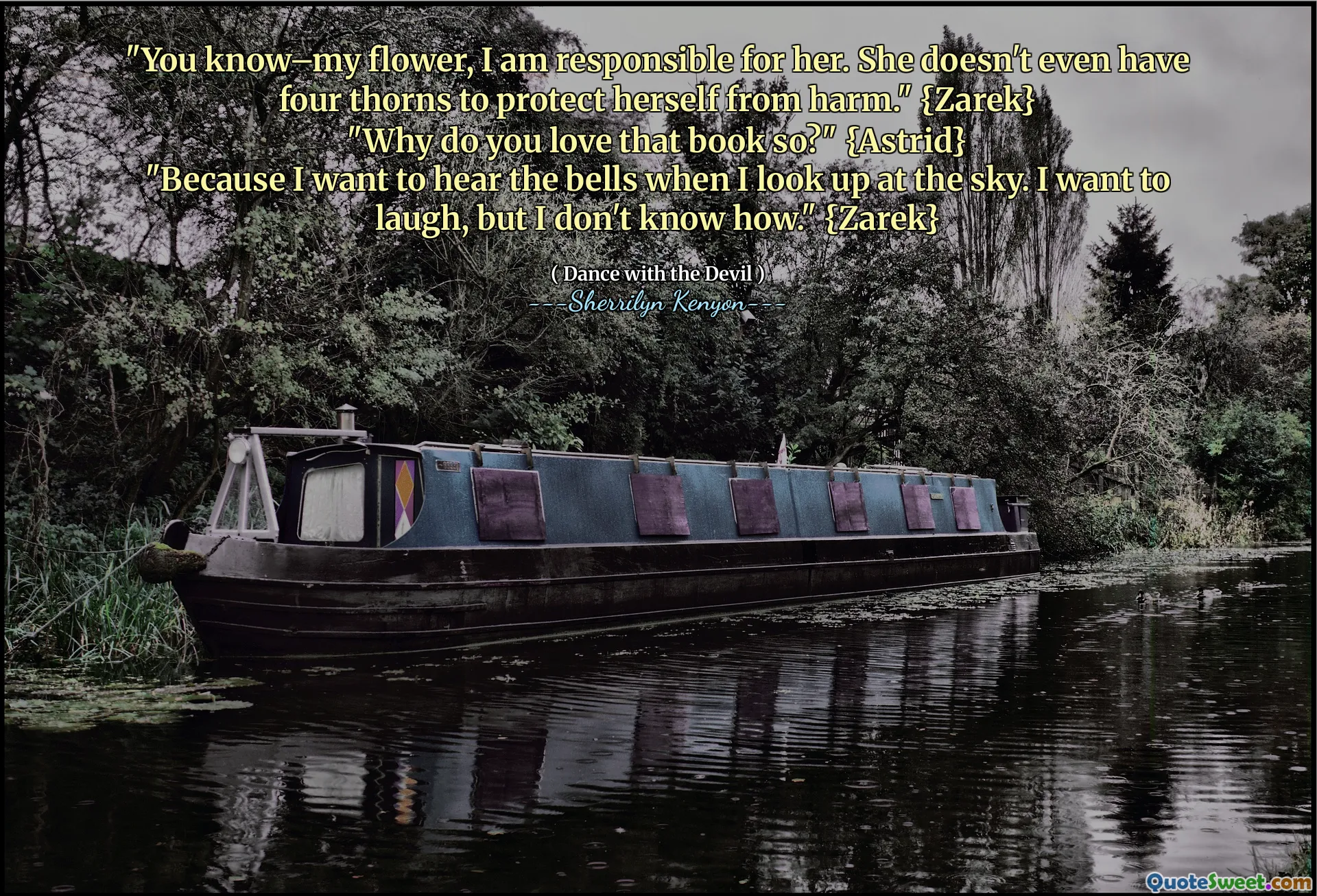
"You know–my flower, I am responsible for her. She doesn't even have four thorns to protect herself from harm." {Zarek} "Why do you love that book so?" {Astrid} "Because I want to hear the bells when I look up at the sky. I want to laugh, but I don't know how." {Zarek}
This passage from Dance with the Devil reveals a deep and poignant layer of vulnerability and protection intertwined with love and emotional pain. Zarek’s metaphor, describing his loved one as a delicate flower without even four thorns, underscores his acute awareness of her fragility and his consequent sense of responsibility to shield her from life's harshness. The imagery here is both tender and sobering — flowers symbolize beauty and innocence, but the absence of thorns denotes a lack of natural defenses, suggesting vulnerability not just physically but also emotionally.
Moreover, the dialogue between Zarek and Astrid touches on his inner turmoil and yearning for joy, which he feels disconnected from. His desire to "hear the bells when I look up at the sky" can be interpreted as a longing for moments of transcendence or happiness, symbols of celebration or hope, while his confession that he doesn’t know how to laugh highlights a profound disconnect from his own emotional fulfillment. It depicts a man who is entrenched in responsibility and protection but is cut off from lightness and personal joy.
This excerpt artfully captures the dual nature of love: the protective, sometimes burdened aspect, and the inherent desire for personal happiness and laughter. It recognizes the complexity of human relationships where care and protection can sometimes overshadow the self’s emotional needs. Zarek’s vulnerability invites readers to empathize with the internal conflicts many face when balancing love’s demands with their own yearning for happiness. The quote resonates on universal themes of responsibility, protection, fragility, and the struggle to reclaim joy amidst emotional shadows.





